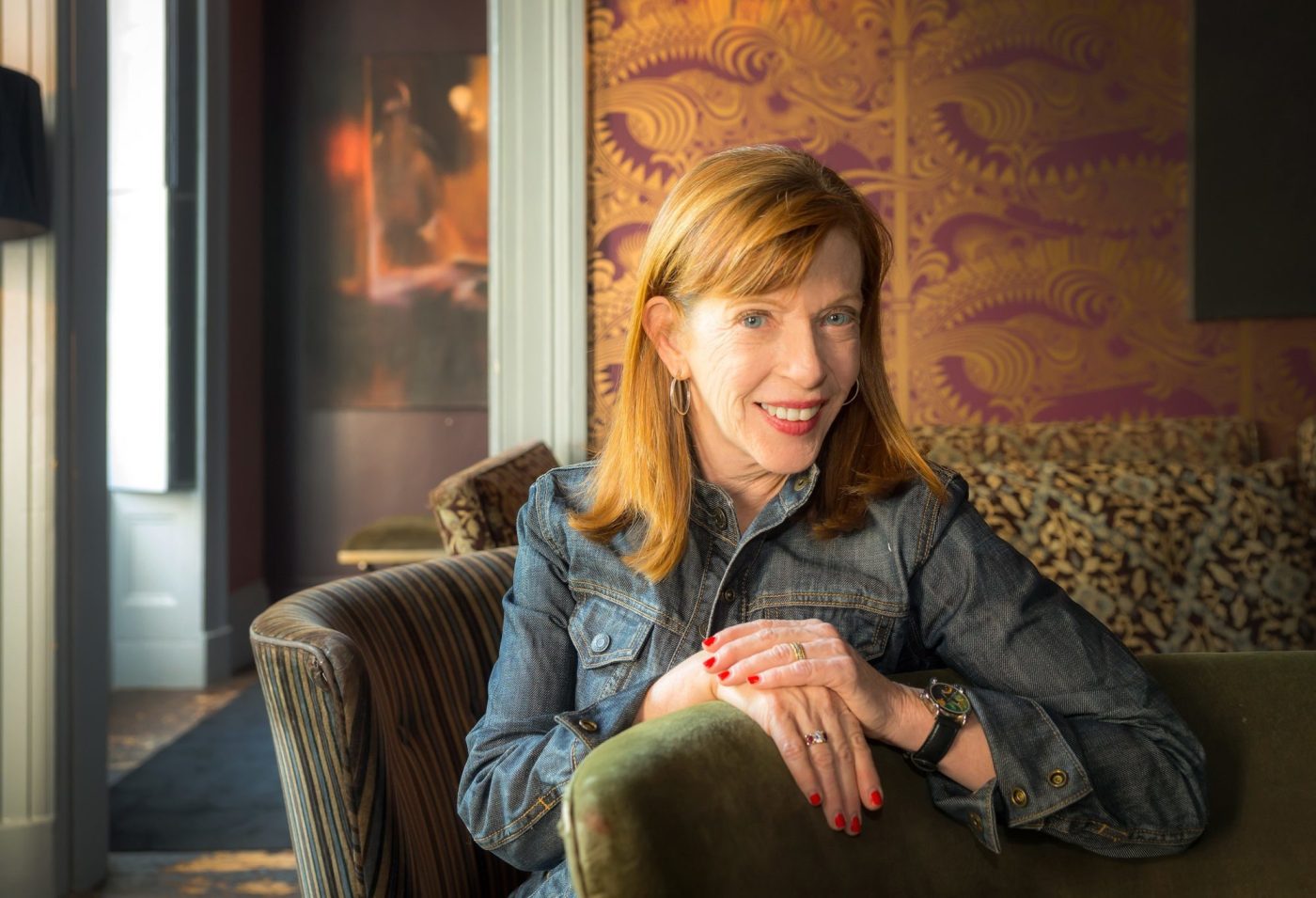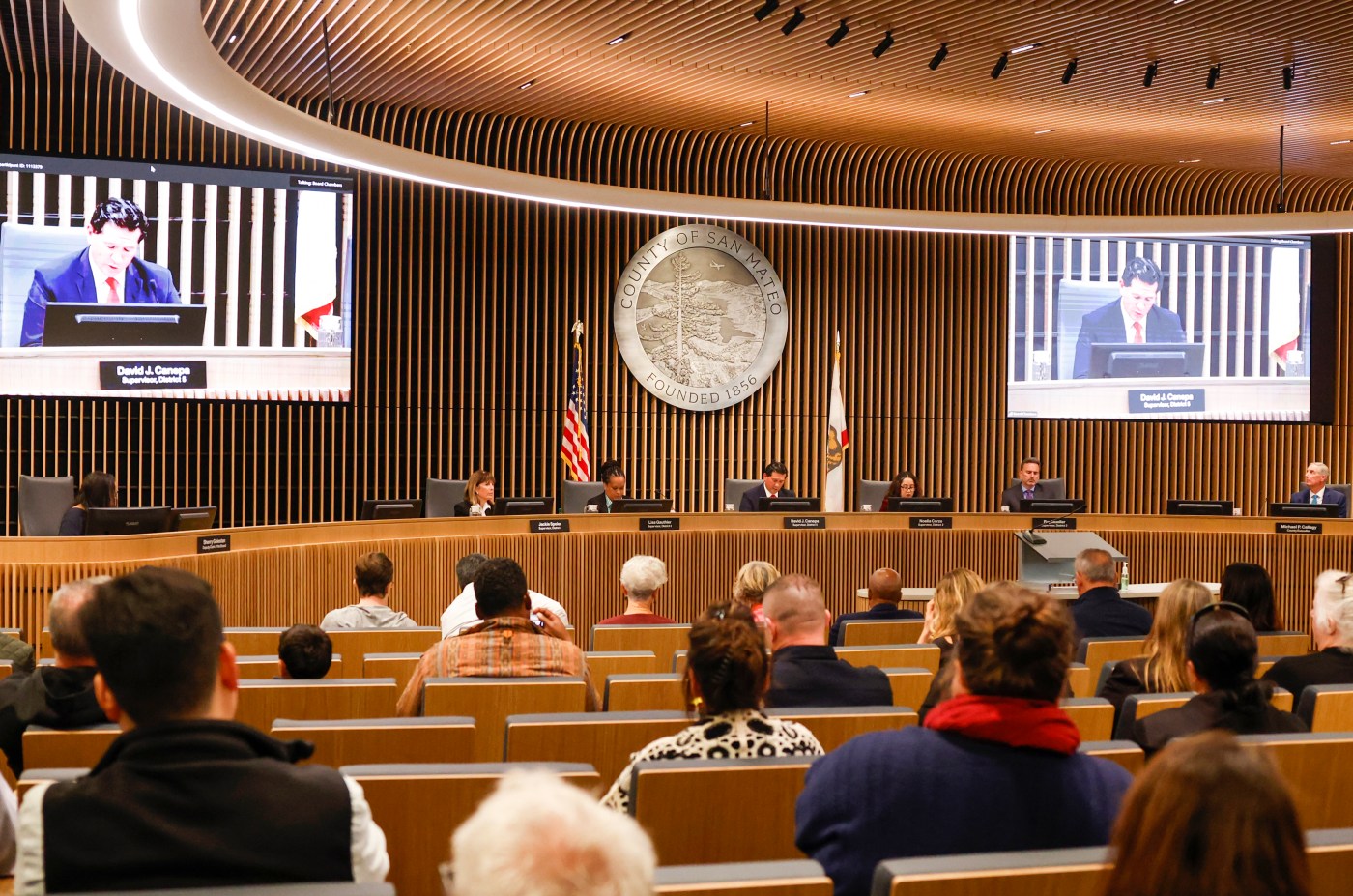Everyday commonalities and the anomalies burrowing within them are like catnip to best-selling writer Susan Orlean. The author of 12 award-winning books (among them, “The Orchid Thief,” “The Library Book,” “Saturday Night” and her new memoir “Joyride”) is a regular columnist for The New Yorker.
Related Articles
Prep basketball: How De La Salle held off Dublin’s late rally to win EBAL thriller
Embarking on a fall 2025 book tour with the memoir she says was driven by time for reflection during COVID-19 pandemic lockdowns and upon realizing “Orchid Thief” had reached its 25th anniversary, Orlean admits in a recent conversation that her curiosity is intrinsic: the irresistible force that since childhood has powered her every move, thought, decision, declaration, deed and misdeed.
Orlean will appear in the Oakland hills starting at 7 p.m. Oct. 30 in the Montclair Presbyterian Church for a ticketed Litquake Aftershocks event held in coordination with the store A Great Good Place for Books in the city’s Montclair Village district. She will read and discuss excerpts of her new book with She Writes Press publisher and Memoir Nation podcast co-founder Brooke Warner.
Born and raised in a suburb of Cleveland and now based in Los Angeles, Orlean’s prolific output of narrative nonfiction has led to writing for Time magazine, Esquire, Outside, Village Voice, Boston Globe, HBO’s How to With John Wilson and more. She once served as an editor at Rolling Stone, worked as a rock critic for the alt-weekly Willamette Week in Portland, Oregon, and has seen more than one book adapted into a high-profile film, such as the Spike Jonze movie “Adaptation,” a 2002 Oscar-winner that starred Meryl Streep as Orlean.
“I’ve always been drawn to topics like Saturday night that are common denominators. It begins with something (to which) everybody can say, “Oh, of course! That’s meaningful to me.” There’s curiosity on my part in what we share and our interpretations of those commonalities.”
Curiosity, she states emphatically, has never let her down. Although some subjects pursued do not turn into good stories, one constant of being curious is the life-affirming rewards found in the approach, regardless of tangible outcomes like an article or book.
“The nature of being alive is to be growing; that’s scientifically true,” Orlean says. “Curiosity is the direct byproduct of growing. It’s learning, experiencing, discovering. To me, that feels essential to being alive.”
In “Joyride,” Orlean is “alive” to the extraordinary accomplishments and good fortune of her life but also the professional and personal losses she has known. Throughout, there is no mistaking her intractable enthusiasm for learning about anything and everything. She had her nose cauterized to reduce snoring, conquered a fear of flying using hypnosis therapy, reported on a woman who owns 27 tigers and hung out with a 10-year-old boy to write about the zeitgeist of being an American kid in 1992 suburbia.
Those joyful rides are balanced at the opposite end of life’s seesaw by traumas. She says her parents fought relentlessly and “hurt each other until the day they died.” Orlean says she became hypersensitive to relational discord, someone who often defended others but never herself. Even so, she mourned her parents’ deaths keenly and confronted her own mortality during a battle with cancer.
Work betrayals and missteps are among the stories told in “Joyride.” Most poignant of all losses was the rupture of her first marriage that ended in divorce. She says the pain of the broken relationship is surpassed by what followed: Orlean had hoped to see her former husband many years later to reminisce about the love and lives they once shared, but he died without that conversation ever occurring.
“Honestly, I’ve had an amazing, wonderful, happy life. That does’t mean I’ve not experienced natural losses of life: losing parents, health challenges, romantic loss. It was important to make clear satisfaction and pleasure aren’t canceled by loss. Maybe they even enhance each other. There’s nothing that makes you appreciate good fortune more than bad fortune. With Peter (Sistrom, my ex-husband), we didn’t complete the circuit. Death is so absolute.”
Orlean eventually remarried and after years of disappointing attempts, the couple became parents. The mystery and creativity found in motherhood opened new portals, introducing new challenges, stories and infinite sources for curiosity.
While telling drawn-from-life stories, Orlean offers insights into her writing process, interview techniques, investigative methodology, rigorous pursuit of strong leads and the disciplined, structural organization she insists provides tremendous freedom. The best writing, according to Orlean, is well-ordered, cohesive, creative and elegant.
“Writing nonfiction, a huge precent of the challenge is organizing the good material you gather. It’s a practical challenge. It’s not strictly conceptual. Let’s imagine someone told me X but now I can’t find the piece of paper I wrote it on. If you can’t find something, you might as well not have it.”
Orlean says she long ago began using index cards with brief descriptions and reference numbers for ideas and gathered materials.
“Doing that offloaded it from my brain and broke it into manageable chunks. It was essential and almost more critical than any other stage of writing. You can do great interviews until your eyes cross, but having a visual representation is helpful. With the cards, I can spread them on the floor and move them around. It sounds crazy, but I had 700 index cards for ‘Rin Tin Tin’ and about 700 for ‘The Library Book.’ ”
More than once, her dogs interfered, running through the room and messing up the cards. She found large metal nuts at a hardware store that didn’t block what was written but were heavy enough to keep wind, a child or dog paws from disrupting the meticulously ordered cards.
Unsurprisingly, listening plays a large role in “Joyride.” From not rushing a person speaking during an interview to reading the material aloud as she edits to listening to recordings of herself telling stories in preparation for writing the memoir, Orlean says good listening is not automatic.
“You have to actively practice the skill. It’s good for everybody to listen to themselves and realize how often you interrupt someone, rush ahead, get restless, lose patience. It can feel awkward, but it’s good to practice tolerating silence.”
Finally, Orlean had some thoughts on threats to independent journalism in 2025.
“I hope this is a phase and not a trend. The majority of people understand, believe and agree that freedom of speech is truly fundamental to a functioning society. What’s going on is terrifying. All I can hope is it will galvanize people and make them alert to the idea that there’s no coming back once you dismantle the machines of free speech. Right now, I’m quite concerned — and there’s reason to be.”
For online details about and tickets to Orlean’s appearance at Montclair Presbyterian, visit bit.ly/orleanmontclair2025.
Lou Fancher is a freelance writer. Reach her at [email protected].





